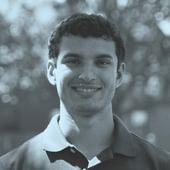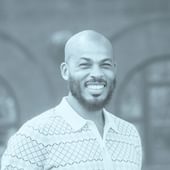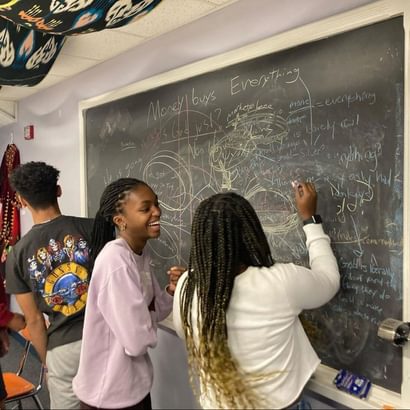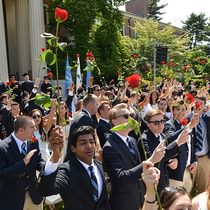

Department of Philosophy & Religious Studies
Meaning, Justice, and Knowledge
The department invites students into three distinctive human quests: the search for meaning, the search for justice, and the search for the foundations of knowledge. These searches are lifelong pursuits. Our classes help students to pursue their own authentic directions for this work by providing an introduction to outstanding literature in the field, and cultivating the necessary skills and virtues for its pursuit.
Our Faculty
Learning happens across all aspects of our campus. Andover's faculty are subject matter experts, mentors, stewards of Knowledge & Goodness, and much more. Kiran Bhardwaj is the Department Chair.


Kiran Bhardwaj
Instructor and Chair, Philosophy and Religious Studies [email protected] view full profileDr. Bhardwaj is an instructor in Philosophy and Religious Studies, and teaches courses including Blame and Forgiveness, Responses to Atrocities, Feminist Philosophies, Views of Human Nature, and Introduction to Ethics. She specializes in ethics (particularly Kantian ethics), moral psychology, ethics of technology.
Dr. Dugan specializes in Judaism, Christianity, and Islam, with a particular focus on the ancient and medieval world.
IN THE CLASSROOM:
Religions of the Book | PHR310
This class will introduce students to Judaism, Christianity, and Islam, and the kaleidoscope of agreements and disagreements within and between these three religions. How does God communicate with humanity? How does one live a holy life (and why bother)? Is there life after death? What happened at the beginning of time? What will happen at the end? Students will explore the ways that Jews, Christians, and Muslims have asked and answered these questions—and many more—from their origins to today. By examining scriptures, memoirs, fiction, documentaries, graphic novels, and music, students will learn about the diversity and richness of these three traditions and their crucial role in the history, present, and future of the world.

Sergia Hay
Instructor, Philosophy and Religious Studies, Pease House Complement, Outdoor Pursuits Enthusiast, Published Author [email protected]Dr. Hay teaches philosophy courses, including Existentialism, Introduction to Ethics, and Proof and Persuasion. Prior to coming to Andover, she taught philosophy for 20 years at the college/ university level and is the author of, "Ethical Silence: Kierkegaard on Communication, Education, and Humility" (Lexington 2020). She specializes in ethics; history of philosophy; existentialism.

Austin Washington
Instructor in Philosophy and Religious Studies and Dean of Flagstaff Cluster [email protected]Dr. Washington specializes in Christian social ethics and African American religion.
Sample Courses
Views of Human Nature | PHR370
A critical examination of selected traditional and contemporary views of human nature with the following questions in mind: Do we have a characteristic nature? What are our basic needs, purposes, rights, obligations, and values? To what extent are our actions determined by heredity and instinct? Are we free? Are we responsible for our actions? How ought we make generalizations in general, and about human beings in particular? Class discussions and written exercises are designed to encourage participants to develop views of their own against a background of a basic understanding of the readings.
Ethics of Blame and Forgiveness | PHR534
This course explores the ethics of blame and forgiveness. When we see harm done, it’s natural to immediately look for who to blame or punish. However, questions of blame aren’t quite that simple. We might ask: does a person’s intentions matter for whether they deserve blame—what if the harm is unintentional, or a matter of bad luck? How do we assign responsibility when a group or a community as a whole seems at fault, as in oppression or climate change? What if our shaming and blaming behaviors don’t “work,” as when the person becomes defensive and continues the behavior? Similarly, forgiveness is full of thorny questions—what is forgiveness “for”? Is forgiveness ever “owed,” as to a sincerely repentant wrongdoer? Are there actions that are unforgivable? This course will explore work by Desmond Tutu, Martha Nussbaum, Susan Wolf, and other philosophers and thinkers. The course may also explore related topics in moral psychology, such as anger, resentment, contempt, disgust, and hope.
Baseball and Philosophy | PHR 541
This course explores topics in philosophy and applied ethics through the lens of America’s Pastime: baseball. Class topics may include parallels between sports fandom and religious belief and belonging; the proud but furtive history of “lying” and stealing signs in baseball; the Negro Leagues, “desegregation” of organized baseball, and diverse Black philosophies of resistance, and more.










